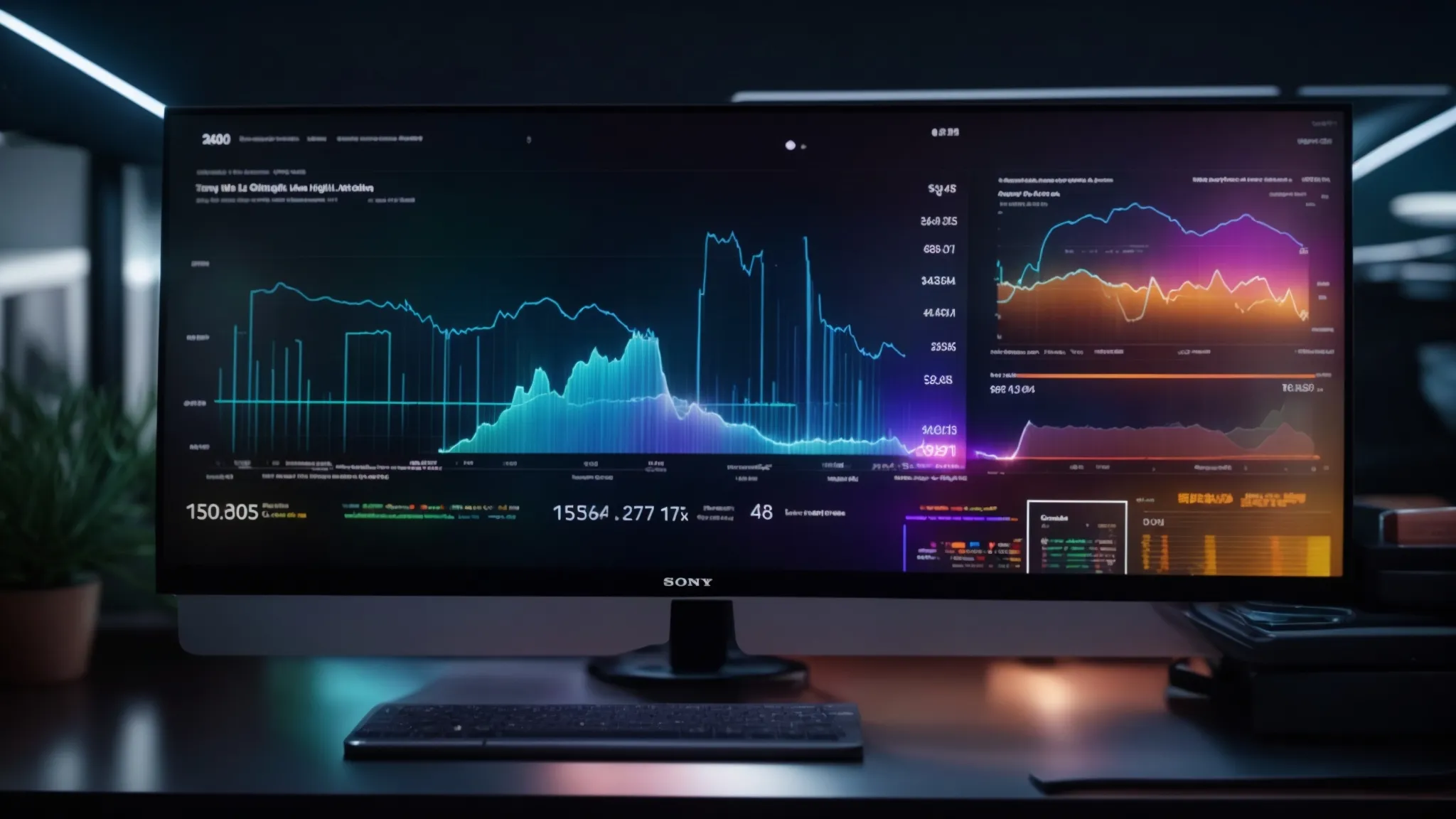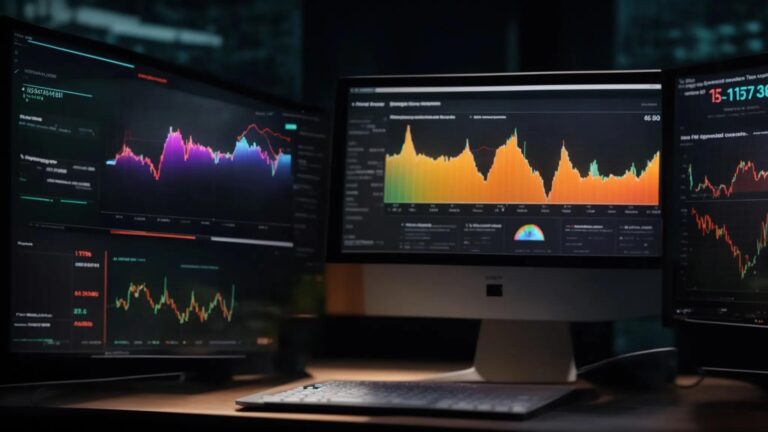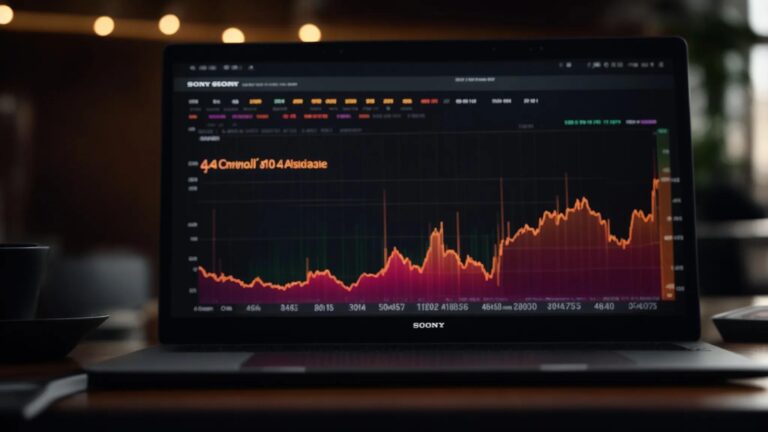Heads Up: When you purchase through links on our site, we may earn an affiliate commission at no cost to you.
Meta titles and descriptions are among the most critical elements of on-page SEO, directly influencing how a web page appears in search engine results pages (SERPs). These HTML elements provide a brief yet compelling summary of a page’s content, helping search engines and users determine its relevance. Well-crafted meta tags can significantly improve click-through rates (CTR), brand visibility, and search rankings, making them essential for any SEO strategy.
Optimizing meta titles and descriptions isn’t just about including keywords—it’s about creating engaging, concise, and informative snippets that entice users to click. Search engines like Google analyze metadata to understand a page’s context, relevance, and user intent. In contrast, users rely on it to decide whether a page provides the necessary information. Poorly written meta tags—such as generic descriptions, duplicate content, or keyword-stuffed titles—can lower search visibility and lost traffic opportunities.
This guide will summarize the essential strategies for optimizing meta titles and descriptions, providing best practices, industry insights, and SEO tools to refine your metadata strategy.
Key Takeaways
- Meta titles and descriptions impact SEO and CTR: Well-optimized metadata improves click-through rates (CTR), increases search visibility, and enhances user engagement.
- Google considers user intent when displaying metadata: Meta titles and descriptions should align with search intent to attract the right audience and improve organic traffic.
- Keyword placement should be strategic: Incorporate primary keywords naturally without keyword stuffing, ensuring metadata remains readable and compelling.
- Meta titles should stay under 60 characters: Keeping meta titles concise prevents truncation in search results, making them more effective for attracting clicks.
- Meta descriptions should be action-driven and under 160 characters: Well-written descriptions include a clear CTA, summarize page content, and entice users to engage with the website.
- SEO tools help refine metadata strategies: Platforms like Yoast SEO, SEMrush, Ahrefs, and Google Search Console provide real-time insights into meta tag performance.
- Dynamic and AI-driven metadata is shaping the future. AI-powered SEO tools are generating automated meta descriptions, improving large-scale content optimization.
- Voice search and mobile optimization are changing metadata trends: Meta descriptions should reflect conversational language to align with voice search queries and mobile-first indexing.
- A/B testing can improve metadata effectiveness: Businesses should regularly test and refine their meta titles and descriptions based on CTR data and engagement metrics.
What Are Meta Titles and Descriptions?

Understanding the Role of Meta Tags in SEO
Meta titles and descriptions are HTML elements that define how a web page appears in search engine results. The meta title (title tag) acts as the clickable headline on Google’s SERPs, while the meta description provides a short preview of the page’s content. They influence SEO performance and user experience, guiding users toward the most relevant search results.
A well-optimized meta title helps search engines understand a page’s main topic, impacting its ranking in organic search results. Meanwhile, an engaging meta description improves click-through rates (CTR) by persuading users to visit the page.
For example, in a Google search for “real estate marketing tips,” a well-optimized result might look like this:
Meta Title: “Real Estate Marketing Tips | Boost Your Sales with Proven Strategies”
Meta Description: “Discover the best real estate marketing tips to attract buyers, increase visibility, and grow your business. Get expert insights to maximize your success.”
In this example, the meta title includes target keywords while remaining concise and engaging. The meta description provides additional context and a call to action (CTA) to encourage clicks.
How Search Engines Display Meta Titles and Descriptions
Search engines dynamically generate meta titles and descriptions based on page content and user queries. While Google prefers using provided metadata, it sometimes rewrites descriptions to better match search intent. This is why optimizing meta tags correctly is crucial—when properly structured, they are more likely to appear as intended in search results.
If a meta description is too long (over 160 characters), Google may truncate it, reducing its effectiveness. Similarly, meta titles that exceed 60 characters risk being cut off, leading to incomplete or unclear messaging.
Poorly optimized meta tags can lead to:
- Lower CTR, as vague or generic descriptions fail to attract user attention.
- Lost search visibility if metadata does not align with search intent.
- Duplicate content issues can weaken SEO performance.
Understanding how meta tags influence search results and refining them for clarity, relevance, and engagement ensures higher traffic and better rankings.
- Instant feedback
- Valuable insights
- Actionable tips
Why Optimizing Meta Titles and Descriptions Matters

Optimizing meta titles and descriptions is more than just an SEO best practice—it directly influences user engagement, search rankings, and website traffic. When crafted strategically, meta tags can enhance click-through rates (CTR), improve brand awareness, and ensure that content aligns with search intent. Neglecting these elements can result in missed opportunities, as search engines and users may overlook pages that lack clear, compelling metadata.
Impact on Click-Through Rates (CTR) and User Engagement
A well-written meta title and description can significantly improve CTR by attracting users to click on a page instead of competing results. Search engines prioritize relevant, engaging metadata because it enhances the search experience, making it easier for users to find the most valuable content.
For example, consider two search results for a real estate marketing guide:
Unoptimized Meta Title & Description:
- Title: “Real Estate Guide – Learn More About Marketing”
- Description: “This page contains information about real estate marketing strategies.”
Optimized Meta Title & Description:
- Title: “10 Proven Real Estate Marketing Strategies | Boost Your Sales Today”
- Description: “Discover expert real estate marketing strategies to attract buyers, generate leads, and close deals faster. Learn how to grow your business today!”
The second version is more likely to receive clicks because it uses action-driven language, incorporates targeted keywords, and clearly explains the value of the content. The description is a mini advertisement, persuading users that the page offers the necessary information.
SEO Benefits of Well-Written Meta Titles and Descriptions
Meta titles and descriptions influence Google’s ranking algorithm by signaling relevance to search queries. When meta tags include properly placed keywords and match search intent, they improve a page’s organic search visibility.
A well-optimized meta title:
- Increases the likelihood of ranking higher for relevant searches.
- It helps search engines understand the page’s primary focus.
- Encourages users to engage with the content, reducing bounce rates.
A compelling meta description:
- Provides a clear summary of the page’s content.
- Reinforces brand messaging while improving user experience.
- Increases CTR, signaling to Google that the content is valuable to searchers.
Search engines also measure user interaction with search results. If a page has strong engagement and high CTR, Google sees it as a relevant resource and may improve its ranking over time. On the other hand, a low CTR indicates that the metadata isn’t effectively capturing user interest, which can lead to decreased visibility in search results.
Meta Tags and Their Influence on Bounce Rate
A website’s bounce rate refers to the percentage of users who visit a page but leave without interacting further. If meta descriptions set the wrong expectations, visitors may exit the page quickly, signaling to Google that the content does not match user intent.
For instance, if a user clicks on a result expecting an in-depth real estate marketing strategy guide but finds only a basic overview, they will likely leave the site immediately. This bounce behavior negatively affects SEO and may cause Google to lower the page’s rankings.
By crafting accurate, engaging, and informative meta descriptions, businesses can reduce bounce rates and ensure users find content that meets their expectations.
How to Write High-Converting Meta Titles

A well-optimized meta title is a web page’s first impression in search engine results. It must be clear, engaging, and keyword-rich to attract clicks and improve SEO performance. A poorly written meta title can lead to low click-through rates (CTR), missed traffic opportunities, and reduced search visibility. To create compelling meta titles, businesses must focus on length, keyword placement, and user intent alignment.
Best Practices for Optimizing Meta Titles
A strong meta title should be concise, informative, and compelling. Google typically displays only the first 50-60 characters of a title, so keeping it within this limit is essential to avoid truncation.
An effective meta title:
- Includes primary keywords naturally to enhance SEO relevance.
- Provides a clear description of the page’s content.
- Engages users with a compelling call to action (CTA) or power words.
- Aligns with search intent to attract the right audience.
For example, consider a real estate website optimizing a page for first-time homebuyers:
✅ Optimized Meta Title: “First-Time Homebuyer Guide | Find Your Dream Home Today”
❌ Poor Meta Title: “Home Buying Tips – Everything You Need to Know About Houses”
The optimized title uses a clear topic, includes a call to action, and contains targeted keywords that appeal to the intended audience.
Incorporating Keywords in Meta Titles Without Over-Optimization
While keywords are essential for SEO, forcing them unnaturally into meta titles can make them appear spammy. Google’s algorithm prioritizes readability, meaning keyword stuffing can reduce CTR and rankings.
Instead of writing: “Best SEO Services | SEO Agency | SEO Marketing Company”
A better approach would be: “Boost Your Rankings with Expert SEO Services | Free Consultation”
This version maintains keyword relevance while keeping the title natural and user-friendly.
Balancing Branding and SEO in Meta Titles
Incorporating a company name in meta titles can strengthen recognition and credibility for businesses looking to enhance brand awareness. However, it should not take up valuable space at the expense of essential keywords.
✅ Best practice for branding: “Affordable Web Design Services | XYZ Digital Agency”
❌ Overloaded branding: “XYZ Digital Agency | Best Web Design & SEO Services by XYZ Digital Agency”
A strong meta title balances brand presence and search relevance, ensuring it remains engaging, keyword-rich, and click-worthy.
Tools for Optimizing Meta Titles and Descriptions

Optimizing meta titles and descriptions requires more than just following best practices—it also involves tracking performance metrics and making data-driven improvements. Various SEO tools can help analyze meta tag effectiveness, identify opportunities for optimization, and ensure that meta elements align with search engine algorithms.
Using SEO Plugins and Tools for Better Meta Optimization
For websites built on WordPress, plugins like Yoast SEO, Rank Math, and All in One SEO provide real-time analysis of meta titles and descriptions. These tools:
- Allow users to preview how meta tags appear in Google search results.
- Provide SEO scores based on keyword placement, readability, and length.
- Offer recommendations for improving metadata to enhance CTR.
For example, Yoast SEO highlights whether a meta description is too long, lacks keywords, or fails to align with search intent. Similarly, Rank Math provides a snippet preview, ensuring that meta tags are engaging and optimized for visibility.
Leveraging SEMrush and Ahrefs for Meta Tag Performance
SEO platforms like SEMrush and Ahrefs offer in-depth metadata analysis, allowing businesses to track how meta titles and descriptions impact search rankings and click-through rates.
These tools can:
- Analyze competitors’ metadata to identify high-performing meta structures.
- Detect duplicate meta descriptions that may be affecting SEO performance.
- Monitor CTR trends to determine if meta-tag adjustments improve search visibility.
Businesses can refine their metadata strategies by comparing CTR data across different pages and ensuring that titles and descriptions are optimized for maximum engagement.
Using Google Search Console to Analyze Meta Tag Effectiveness
Google Search Console (GSC) is essential for monitoring how meta tags perform in organic search results. The Performance Report provides insights into:
- The average CTR for specific pages is based on meta titles and descriptions.
- Which queries trigger search impressions, and do meta tags align with user intent?
- How search engines interpret metadata, helping businesses refine keyword targeting.
For instance, if a meta description has a low CTR despite ranking well, it may indicate that it lacks compelling language or does not match search intent. By A/B testing different meta descriptions, businesses can determine which versions drive higher engagement.
A/B Testing and Meta Tag Adjustments
SEO is ongoing; meta titles and descriptions should be regularly tested and refined. A/B testing allows businesses to:
- Compare different meta descriptions to see which one generates higher CTR.
- Test variations of meta titles to determine the best keyword positioning.
- Experiment with different calls to action (CTAs) to enhance user engagement.
For example, testing the following two meta titles could reveal which one performs better:
- “SEO Services to Boost Your Website Traffic | Free Consultation”
- “Expert SEO Services | Get Higher Rankings & More Traffic”
Businesses can fine-tune their metadata strategy for better search performance by analyzing CTR data and making incremental changes.
Using the right SEO tools ensures that meta titles and descriptions are continuously optimized, leading to higher visibility, increased CTR, and improved search rankings.
Industry-Specific Strategies for Meta Optimization

Different industries require unique meta title and description optimization approaches based on target audience, search intent, and competition. While general SEO principles apply to all businesses, certain industries—such as e-commerce, real estate, and local businesses—benefit from customized metadata strategies to maximize visibility and engagement.
Meta Tag Strategies for E-Commerce and Real Estate Websites
For e-commerce and real estate websites, meta titles and descriptions should highlight product details, location-based keywords, and buyer intent to attract the right audience. These industries often compete in highly saturated markets, making unique and compelling metadata crucial for standing out in search results.
Optimizing Meta Tags for E-Commerce Pages
E-commerce websites should:
- Include product-specific keywords in meta titles (e.g., “Buy Nike Running Shoes – Free Shipping & Discounts”).
- Use urgency-driven CTAs in meta descriptions (e.g., “Limited-time sale on top-rated running shoes! Shop now and save 20%”).
- Optimize category pages with broad LSI keywords to target multiple search queries.
For instance, a meta title for an online furniture store should read:
✅ “Modern Wooden Dining Tables | Shop Affordable Home Furniture”
This meta title includes relevant keywords, a product type, and a strong CTA, which increases the likelihood of attracting high-intent buyers.
Optimizing Meta Tags for Real Estate Listings
In real estate SEO, using location-based keywords and emotional triggers in meta titles helps attract potential buyers and renters.
Effective real estate meta titles should:
- Incorporate city, neighborhood, or ZIP code keywords (e.g., “Luxury Homes for Sale in Miami | Schedule a Viewing Today”).
- Use descriptive and enticing language to appeal to buyer emotions (e.g., “Find Your Dream Home | Stunning Properties Available Now”).
- Highlight unique selling points (USPs) like “waterfront views,” “spacious backyard,” or “pet-friendly apartments.”
A well-optimized real estate meta description might read:
✅ “Explore the best homes for sale in Los Angeles. Stunning modern designs, prime locations, and exclusive deals. Schedule a private tour today!”
This approach improves click-through rates (CTR) by targeting local buyers while emphasizing value-driven selling points.
How Social Media Marketing Impacts Meta Optimization
Meta tags also play a crucial role in social media marketing, as they determine how content appears when shared on platforms like Facebook, Twitter, and LinkedIn. Open Graph (OG) tags ensure that meta titles and descriptions are displayed correctly when content is posted on social media feeds.
For example, if a business shares a blog post on Facebook, an optimized meta title and description will make the post more visually appealing, increasing engagement and social shares.
By tailoring meta tags to specific industries and ensuring consistency across search and social platforms, businesses can enhance brand visibility, improve user engagement, and maximize organic traffic.
Frequently Asked Questions
What are meta titles and descriptions in SEO?
Meta titles and descriptions are HTML elements that define how a web page appears in search engine results pages (SERPs). The meta title acts as the headline, while the meta description provides a short preview of the page’s content.
Do meta descriptions affect Google rankings?
While meta descriptions are not a direct ranking factor, they significantly influence click-through rates (CTR), which can indirectly improve search rankings.
How long should a meta title be?
A meta title should be under 60 characters to avoid truncation in search results.
What is the ideal length for a meta description?
A meta description should be under 160 characters to ensure it is fully visible in SERPs.
How can I optimize my meta descriptions for better CTR?
To improve CTR, meta descriptions should:
- Include primary keywords naturally.
- Be concise and engaging.
- Feature action-driven language with a strong CTA.
Why does Google rewrite my meta descriptions?
Google sometimes rewrites meta descriptions if it believes another snippet from the page better matches the user’s search query. Ensuring descriptions are relevant and informative reduces the likelihood of Google replacing them.
What tools can help optimize meta titles and descriptions?
SEO tools like Yoast SEO, Rank Math, SEMrush, Ahrefs, and Google Search Console can help analyze and improve meta tag performance.
Can I automate the creation of meta titles and descriptions?
AI-driven SEO tools and dynamic metadata generation are increasingly used to create automated meta descriptions for large-scale websites. However, manual review ensures quality and relevance.
How often should I update my meta tags?
Reviewing meta titles and descriptions regularly, every few months or when CTR declines, ensures they remain optimized and aligned with search intent.
Conclusion
Optimizing meta titles and descriptions is crucial to any SEO strategy, as they influence search engine rankings and user engagement. Well-crafted meta tags improve click-through rates (CTR), enhance brand visibility, and ensure content aligns with search intent. Businesses can maximize their organic search presence by integrating targeted keywords naturally, maintaining concise yet compelling descriptions, and leveraging SEO tools for performance tracking.
As Google’s algorithms evolve, focusing on user engagement metrics, AI-driven metadata selection, and voice search optimization will become increasingly important. Businesses must regularly test and refine their meta tags to stay competitive and maintain high search visibility in an ever-changing digital landscape.















